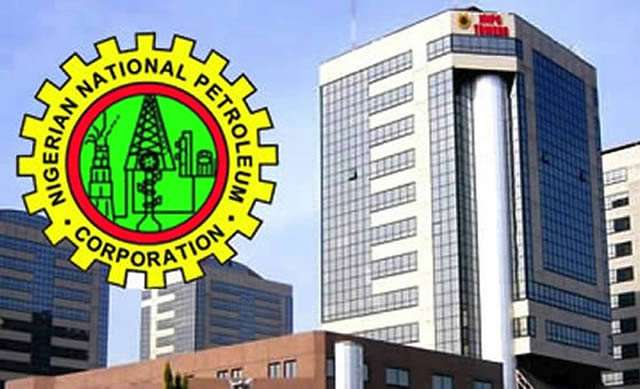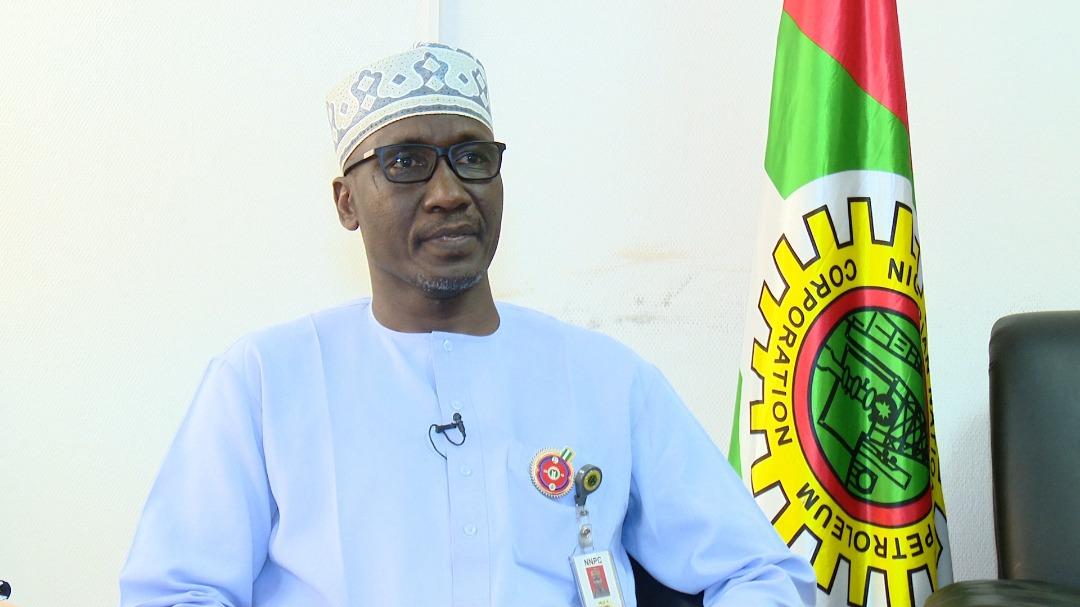Energy
NNPC’s Brass LNG Project: Anatomy of organized sabotage?
Published
8 years agoon
By
Olu Emmanuel
By Ifeanyi Izeze
To say that the Brass Liquefied Natural Gas (LNG) Project has been streamed with too many tentativeness is an understatement. Tailing the politics of the Brass project since2004 when the company was incorporated; it could be convincingly said that the joint venture partners including the Nigerian National Petroleum Corporation (NNPC) are playing tricks with the entire project obviously for sinister reasons. Without mincing words, there is an issue of genuine commitment by the shareholding partners to the actualisation and timely take off of the project.
When the House of Representatives, on May 31st 2018, resolved to probe the implementation of the project which was alleged to have been poorly managed, it would have been a welcomed development if not that the lawmakers themselves cannot muster enough will -power to be honest in their dealings with issues that concerns our collective interests.
The Senate in January 2018 also raised an alarm over alleged massive fraud in the NNPC as it relates to the Brass LNG project. It mandated its committees on Public Accounts and Gas to investigate the alleged $784,265,947.54 fraud and other activities of Brass LNG, including an illegal account in the name of the Federal Government.
As good as it sounds that both chambers of the National Assembly have resolved to investigate the fleet of allegations of abuse and mismanagement of funds running into billions of dollars meant for initial take off of the Brass project, the matter should be treated as both political and technical sabotage of our national interests.
When the project was originally set up in 2004, the initial project cost was pegged at about $3.5 billion. Today the cost of that same project stands at over $25 billion as a result of what could rightly be described as deliberately organised sabotage by several stakeholders including the NNPC and the federal government itself.
Originally slated to be delivered in 2009, it is now 19 years down the line and the project is still on top of the desk at the planning stage as a result of unnecessary delays caused by unnecessary bickering, lack of political will and above all uncertainties around the Petroleum Industry Bill (PIB) which has remained a self-inflicted injury by the federal government.
Obasanjo actually sowed the seed of discomfort in this project when he also initiated another LNG project in 2005 barely one year from the conception of the Brass project. He held the ground breaking ceremony for the multi-billion dollar Olokola Liquefied Natural Gas (OKLNG) situated at the border town between Ogun and Ondo states when the Brass project was yet to be firmed up. The OKLNG as packaged by President Obasanjo was to be a joint venture between the NNPC, Chevron, British Gas and Shell. It was expected to come on stream in 2012.
And as if that was not enough, the same federal government also initiated actions on Nigerian LNG Train 7 project.
So not surprising that as we talk today, none of the three LNG projects has progressed beyond the drawing board despite the fact that billions of dollars have already been expended on them. The decision by the government to concurrently undertake the three LNG projects is solely to be blamed for the failure of any of them to take off till today.
The OKLNG project has been stalled since the international oil companies (IOCs) partners withdrew from it due to what the shareholders called “varying constraints”, with only the NNPC left. Likewise, the Brass LNG project, suffered setback since ConocoPhillips withdrew from the project in 2013 in addition to ChevronTexaco also threatening to pull out.TotalFinaElf also at certain points angled to quit the project for reasons that could also be called “varying constrains.”
The decision by the Federal Government to undertake the three LNG projects — Nigeria LNG Train 7, Olokola and Brass LNG -led to the failure to complete any of the projects several years after their conception. The Federal Government had spent over $3 billion already on the Brass LNG project and over $2 billion on the OKLNG projects respectively. Delay in launching the NLNG’s Train 7 is said to be costing the country around $25 billion in foreign investment.
It was ridiculous for the government to have dabbled into many LNG projects at the same time when it has no two coins to rob each other as investment fund. How can we have Brass LNG that is struggling to take off and at the same time set up another LNG project- the OKLNG while still grappling with what to do with NLNG Train 7?
The question is: why did Obasanjo chose to concurrently pursue three LNG projects instead of concentrating on finishing one first? Even at the best of time for Nigeria, we do not have the resources to pursue three LNG projects at the same time. And that was where the problem came in.
Is it not surprising that up till now the issue of availability of gas feedstock for the project is still unresolved? The Petroleum Industry Bill (PIB) is also not helping matters as would-be gas suppliers are already protesting what they called harsh fiscal regimes as recommended in the PIB that will make gas development not only unprofitable but very challenging. The suppliers are insisting they have to invest heavily in gas development if they are to commit to a Gas Supply Agreement (GSA) for 25 years with Brass LNG. And then the questionable ability of the Nigerian National Petroleum Corporation (NNPC) to fund its own share of the joint venture cash call for this development still adds to the quagmire.
Commendably, the company, Brass LNG Ltd., has done a lot of optimisation in the project after series of pull outs, withdrawals and new enlistments. It has reconstituted its management/shareholding team. It has dropped the Optimized SM Process technology belonging to an erstwhile partner in the project, ConocoPhillip and adopted the APCI technology used in building Nigeria LNG plants in Bonny. The Managing Director is now from ENI (Agip). Also we have been told by the administrators of our oil concerns that the cost of the project has been scaled down to a level that will ensure affordable cash injection by the shareholders whatever that means.
However, despite assurances by the Federal Government that the shareholding partners are fully committed to the project, it still remains unclear how contending issues including funding, shareholders relationships, Off-take Agreements with identified buyers are being addressed by NNPC/Government, and most importantly, availability of the natural gas feedstock for the project.
In 2008, after assessing the availability of gas from the participating international oil companies, it was discovered that they could only guarantee about 70 percent of the natural gas feedstock needed for the project. And that was over a year ago. So the shareholders decided that they get the remaining 28 per cent gas needed before proceeding with the sealing of the FID. How they are doing this is at best blurred and at worst obscured because almost all the partnering companies have been urging the Government/NNPC to invest massively in development of gas infrastructures.
Even as we talk now, the problem of availability and sourcing of the natural gas feedstock for the project seems to have assumed the front burner in the joint venture concerns.
It seems obvious that some of the stakeholding companies in the Brass Project are critical suppliers of natural gas to the NLNG plants in Bonny. These companies would prefer to channel their available gas resources to meet their contractual commitments to the NLNG and may continue to foot-drag commitments to the Brass project except the Federal Government invests in development of new gas infrastructures.
The National Assembly should actually go beyond probing the alleged malfeasance and impress on the Presidency (the executive) the urgent need to expedite actions on this Brass LNG project to save the nation of avoidable and costly expenditures on the project that is yet to take off.
The way forward is for the federal government to convincingly reassure partners in the project that it is ready not only to meet its financial obligations but also encourage other stakeholders who may no longer be convinced on the viability of the project. In addition, the federal government should push towards fast tracking the most important contract agreement for the project- the Final Investment Decision (FID) which had suffered several postponements as a result of contributing tentative factors.
While we are still grappling with aspects of the project that Nigeria does not have any control over, the federal government should with the urgency it deserves, firm up all pending agreements with operating companies that are supposed to supply the natural gas feedstock to rejig interest in this very crucial project.
We have progressed to a level on this Brass project that going back is not even an option and foot-dragging only increases the cost which has actually shot up to over 300 percent since the initiative was conceived in 2004. God bless Nigeria!
(IFEANYI IZEZE: [email protected]; 234-8033043009)
You may like


NNPC tells partners, suppliers to bring down costs to 40%


Crude Oil Stealing: Walahi, NNPC is not a serious agency


Electricity deficit hampering investments in gas development, says NNPC


Fiscal responsibility: FRC issues warning to NNPC, Customs, others


Chevron succumbs, promises to recall sacked workers


Non-passage of PIB scares away investors, says NNPC boss
Trending

 Latest4 days ago
Latest4 days agoYoruba film industry mourns as popular actress aunty Ajara passes away

 Trends5 days ago
Trends5 days agoTonto Dikeh reunites son with Churchill after decade-long split

 Business6 days ago
Business6 days agoRite Foods positions industry as catalyst for Nigeria’s clean energy transition

 Football6 days ago
Football6 days agoArsenal’s Osman Kamara completes permanent move to Blackburn Rovers

 Health6 days ago
Health6 days agoControversial preprint revives vaccine–autism debate, draws sharp pushback from medical experts

 Featured7 days ago
Featured7 days agoMidnight raids, teargas: Lagos deploys military-era tactics in mass evictions

 Football6 days ago
Football6 days agoEPL: Confirmed transfer deadline day deals in January 2026

 Business6 days ago
Business6 days agoCBN releases fintech report, maps growth, opportunities, risks in Nigeria’s digital finance sector

